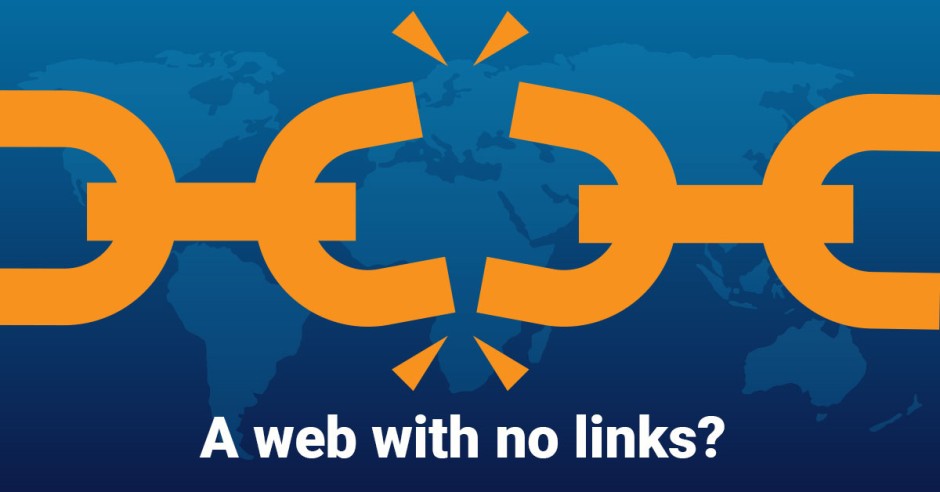Saving the Link: what we’ve accomplished so far, and where we’re headed
Yesterday the Save the Link network launched, to great success. The global network has been months in the making, and aims to bring together civil society organizations, web businesses, and everyday Internet users to rally around one of the fundamental building blocks of the Web: the hyperlink. To many Internet users, it seems surprising that this is even a conversation that we need to be having, considering that links are essentially “critical infrastructure” to our online lives; they’re the equivalent of roads, moving people around the Web and allowing us to access the greatest collection of knowledge and culture the world has ever seen.
Yesterday the Save the Link network launched, to great success. The global network has been months in the making, and aims to bring together civil society organizations, web businesses, and everyday Internet users to rally around one of the fundamental building blocks of the Web: the hyperlink.
To many Internet users, it seems surprising that this is even a conversation that we need to be having, considering that links are essentially “critical infrastructure” to our online lives; they’re the equivalent of roads, moving people around the Web and allowing us to access the greatest collection of knowledge and culture the world has ever seen.
As Kathleen notes:
Pretty appalling that this is even a thing: The web without links is like a world without roads. Help #SaveTheLinkhttps://t.co/ogFGo27Ayi
— Kathleen DeLaurenti (@delaubrarian) May 6, 2015
But despite how integral links are to our experience of the Web, governments – at the behest of Big Media lobbyists – are pushing forward schemes that would allow for link censorship across the world.
These schemes seek to secure Internet censorship tools, and we've seen this before. (Can anyone say SOPA? PIPA?ACTA?) These repeated attempts at gaining the tools needed to block and break links have already been universally rejected by Internet users, but Big Media will stop at nothing.
Perhaps they think if they dress it up as something else, we won’t notice. But we always do. And each time we do, they come up with a new scheme. It looks a lot like this, if, perhaps a lot less cute:

And let me tell you, the Internet community is sick of paying whack-a-mole. Which is why we’ve come together, en masse, to build and grow a community of individuals and organizations who will stand up against these regressive plans, wherever they next emerge.
And already our community is strong: with over 65 organizations from 27 countries around the world – and new partners joining every day – we’re building a formidable army link-o-philes who won’t browse the Internet under duress.
The launch of the network was ushered in by a massive Thunderclap, reaching over 1.5 million people worldwide, and sending a message to decision-makers that Internet users expect them to stand up for the right to link:
A Web with no links? No way! Decision-makers must vote against link censorship schemes now. #SaveTheLinkhttp://t.co/WPrqqUz9jH
— Nate Maingard (@NateMaingard) May 6, 2015
With these threats emerging all over the world, it’s crucial that Internet users draw a line in the sand and say: “no more.”
And the line has been drawn in the European Union, as they head into a copyright review this fall. In advance of this review, EU Parliament has appointed Special Rapporteur Julia Reda to lead on drafting a report suggesting updates to the 2001 Copyright Directive.
Reda’s report on this file puts forward a positive vision for adapting complicated and obscure rules into a unambiguous and flexible roadmap for copyright Digital Age, both promoting access to knowledge and culture, and making rules more accessible for those who are affected by them every day. But even this positive, forward-looking report is a target for regressive link censorship provisions, with legislators trying to shoehorn amendments restricting the right to link. As Reda tweeted out with yesterday’s launch:
My report on EU copyright safeguards the right to link, but many parliamentarians want to change that: https://t.co/cI2mkUM7fu#SaveTheLink
— Julia Reda (@Senficon) May 7, 2015
Civil society organizations and copyright experts also weighed in on the launch of the campaign, with blogs published by Creative Commons, the Electronic Frontier Foundation, BlackNight, and more.
Internet users also weighed in, using the hashtag #SaveTheLink:
"Hey go read this book" isn't copyright infringement. Hyperlinking shouldn't be either. #SaveTheLinkhttp://t.co/m7W9uOj429
— Ben Cotton (@FunnelFiasco) May 6, 2015
If you still don't believe that #copyright is about #censorship read more a/ new law proposal and help #SaveTheLinkhttps://t.co/hsCxvbNNQN
— Maria Świetlik (@digiRgonzo) April 16, 2015
How many links have you clicked today? 50? That's 50 reasons why you should care about link censorship https://t.co/MW2Sv8IFOH#savethelink
— Julia O'Dwyer (@jrodwyer) May 6, 2015
As of today, over 29,000 people have signed on to the campaign to Save The Link, and will be working together to make sure the voices of Internet users are heard loud and clear. You can join them at SaveTheLink.org.



 Take action now!
Take action now!
 Sign up to be in the loop
Sign up to be in the loop
 Donate to support our work
Donate to support our work